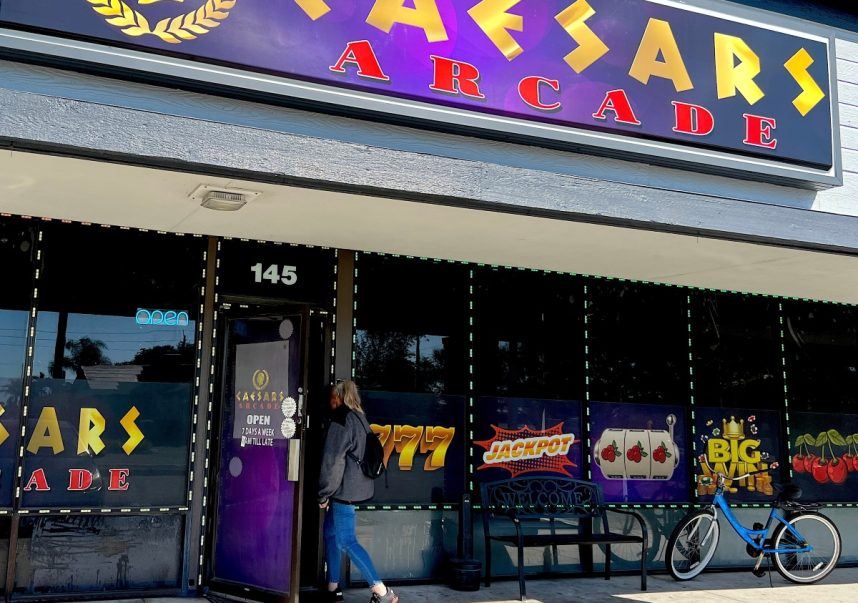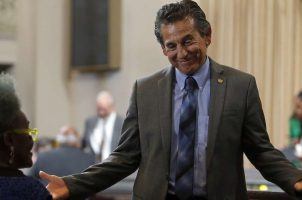Florida Passes Bill Increasing Penalties for Illegal Gambling Operations
Posted on: February 28, 2024, 08:08h.
Last updated on: February 29, 2024, 11:08h.
The Florida Senate on Wednesday passed legislation that would greatly increase the criminal penalties levied against those who are found guilty of operating illegal gambling activities.

In what’s another crackdown on illegal and grey gaming throughout the Sunshine State, the legislature’s upper chamber passed Senate Bill 1046. The statute proposes increasing criminal penalties for specified violations involving unlicensed slot machines or similar devices.
Introduced by state Sen. Jonathan Martin (R-Lee), SB 1046 would elevate penalties for running an illegal gambling establishment from a second-degree misdemeanor to a third-degree felony. For repeat offenders, the penalty rises to a second-degree felony on the second offense, and to a first-degree felony on the third and subsequent offenses.
In Florida, a third-degree felony is punishable by up to $5,000 in fines and five years in prison.
SB 1046 garnered 31 votes in the 40-person Senate. The bill now moves to the House of Representatives for further consideration.
Violators on Notice
Martin’s bill was amended at the House’s request before it reached a Senate floor vote. House lawmakers, who mulled a cloned SB 1046 measure, said they worried that the statute’s language was too severe.
Representatives raised concerns that someone who was found not guilty in a court of law on an illegal gambling charge would still face consequences. That’s because many employers require a job applicant to disclose if they’ve ever been arrested on a felony charge. Felony disclosures are also needed on some mortgage applications.
Martin and the Senate ultimately agreed that a felony charge upon arrest without notice is too consequential. The remedy, as first proposed by the House, was to include the necessity that law enforcement first issue a cease-and-desist letter to a business or venue suspected of running an unlawful gambling enterprise.
The cease-and-desist notice, lawmakers believe, will avoid people being charged with felonies who are unknowingly operating illegal gambling.
If you end up arresting someone for a felony, [they] can say afterward that they didn’t know. But on so many documents these days, you have to disclose even if you are arrested for a felony,” said Martin. “The goal is not to throw people in prison who are not knowingly committing crimes.”
The cease-and-desist letters would come from the Florida Gaming Control Commission, which would necessitate that the alleged illegal gambling operations be terminated within seven days of receiving the notice.
Arcade Crackdown
Martin represents Lee County, where many grey machines operate at businesses branded as arcades.
Florida’s Family Amusement Games Act allows restaurants like Dave & Buster’s to offer amusement games for a chance at tickets or tokens that can be redeemed for prizes. SB 1046 isn’t about those games, but instead focuses on the “777” arcades often housed in dingy retail strip malls.
The arcades claim their machines are legal because they’re skill-based devices, and therefore, don’t run afoul of Florida’s laws on gambling.
“If the game includes a randomized element, such as a random chance as to which prize you can win — even if the outcome relies on skill — it’s considered a game of chance and is illegal under the regulations against slot machines,” a 2023 report from USA Today Network Florida explained.
Police have cracked down on some arcades, but the problem is widespread. Harsher penalties could reduce the number of 777 businesses.
Related News Articles
Illicit Gambling Den Raid Leads to Four Arrests in Oakland
Seminole Hard Rock Casino Fatal Shooting Suspects on the Lam
Casino Crime Roundup: Florida Police-Involved Shooting
Most Popular
Mirage Las Vegas Demolition to Start Next Week, Atrium a Goner
Where All the Mirage Relics Will Go
Most Commented
-
Bally’s Facing Five Months of Daily Demolition for Chicago Casino
— June 18, 2024 — 12 Comments
















No comments yet